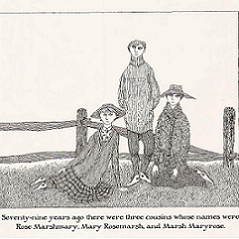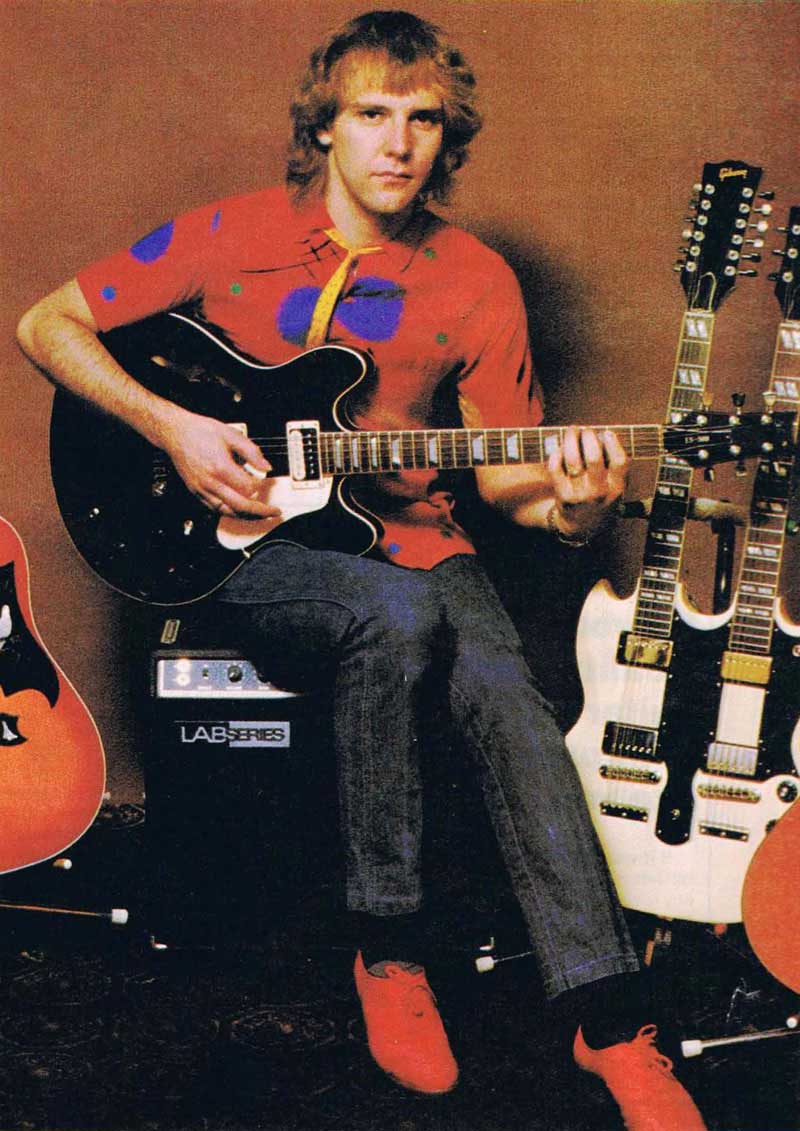Progarchives.com has always (since 2002) relied on banners ads to cover web hosting fees and all.
Please consider supporting us by giving monthly PayPal donations and help keep PA fast-loading and ad-free forever.
/PAlogo_v2.gif) |
|
Post Reply 
|
| Author | ||
N-sz 
Forum Senior Member 

Joined: May 28 2011 Location: NH Status: Offline Points: 344 |
 Topic: Sustain on an acoustic guitar? Topic: Sustain on an acoustic guitar?Posted: January 06 2013 at 22:09 |
|
|
I love playing acoustic guitar and I just can't see myself getting into using electric guitars regularly, but the one thing I really wish I had the option of, which acoustic guitars are not so good at, is holding long notes. Getting great sustain on an acoustic guitar with a pickup sounds like a fanciful idea to me, but errrr, it would be so cool! I heard about this pickup/ whatever that you could install onto a guitar to pretty much give it infinite sustain called the Sustainer, but my friend told me it would give me a ton of feedback on an acoustic guitar. He recommended an ebow which I've seen before. It could be cool to try, but I don't think it's quite what I'm looking for because I doubt I'd be able to play regularly with it (or maybe I'm wrong).
Does anyone know of a good way to get a lot of sustain on an acoustic electric guitar or just better sustain?
Edited by N-sz - January 06 2013 at 22:11 |
||
 |
||
Ambient Hurricanes 
Forum Senior Member 

Joined: December 25 2011 Location: internet Status: Offline Points: 2549 |
 Posted: January 06 2013 at 22:26 Posted: January 06 2013 at 22:26 |
|
|
A lot of it just has to do with your fretting technique. I can't really help you there, as I'm no expert; I'm a guitar player and I mostly play acoustic when I'm not in a band context, but most of the things I've done to improve my sustain have been gradual automatic adjustments that I couldn't name or explain. I do know that a little bit of vibrato can enhance and help to sustain a long note, but you probably knew that already.
The only other advice I can give is to try using different strings; some have better sustain than others. |
||
|
I love dogs, I've always loved dogs
|
||
 |
||
Gerinski 
Prog Reviewer 

Joined: February 10 2010 Location: Barcelona Spain Status: Offline Points: 5093 |
 Posted: January 07 2013 at 03:46 Posted: January 07 2013 at 03:46 |
|
|
As long as you play an electrified acoustic you could try using a compressor pedal such as the Boss CS-3 in the video, I fear that indeed it may generate feedback but you can try playing with the settings to avoid it. My instruments and gear are currently all packed and stored so I can't try anything right now.
I suggest taking your acoustic to the music store and ask them to try it before buying. Learning to generate tremolo with your left fingers also helps. Don't expect that you can get really long sustains with an acoustic though.
|
||
 |
||
Dean 
Special Collaborator 

Retired Admin and Amateur Layabout Joined: May 13 2007 Location: Europe Status: Offline Points: 37575 |
 Posted: January 11 2013 at 05:21 Posted: January 11 2013 at 05:21 |
|
|
One solution I've seen requires heavy modification of the guitar, so I'd only recommend it on a cheap worthless guitar.
Fit a piezo pickup on the bridge feeding into a little 1W amplifier built into the guitar that drives a small speaker placed near the strings - this creates a feedback loop like you get when playing an electric guitar near an amp. The best place for the speaker is in the sound hole and 4" speaker will fit perfectly but that means you'd have to cut new sound holes into the body for the sound to come out - f-holes either side of the strings would work well and look pretty cool.
You can get all you need from eBay cheaply:
1W power amplifier: £8.98
4" speaker: £6.59
total: £24.11
though you could probably bodge/salvage the amp and speaker from an old practice amp or portable radio. The 4-band EQ pre-amp is overkill but if you fit that then the guitar is usable as an amplified acoustic when the sustain amp and speaker is switched off and at less than a tenner that's a cheap and useful mod to make anyway. Edited by Dean - January 11 2013 at 05:30 |
||
|
What?
|
||
 |
||
Dean 
Special Collaborator 

Retired Admin and Amateur Layabout Joined: May 13 2007 Location: Europe Status: Offline Points: 37575 |
 Posted: January 11 2013 at 05:24 Posted: January 11 2013 at 05:24 |
|
|
PS: also, see here: Infinity Sustainer Project.
|
||
|
What?
|
||
 |
||
Triceratopsoil 
Forum Senior Member 

Joined: April 03 2010 Location: Canada Status: Offline Points: 17995 |
 Posted: January 11 2013 at 12:56 Posted: January 11 2013 at 12:56 |
|
|
I have a relatively enormous 80s Fender F50 (I think is the model) acoustic guitar, and after I put very heavy strings on it it's got magnificent sustain without any electronic aid. If you look at particular woods, construction/body styles, strings, picks etc you will find combinations that get you what you want, at least to some degree.
Also Ebow is roughly the coolest device in the guitar world Edited by Triceratopsoil - January 11 2013 at 12:57 |
||
 |
||
Slartibartfast 
Collaborator 

Honorary Collaborator / In Memoriam Joined: April 29 2006 Location: Atlantais Status: Offline Points: 29625 |
 Posted: January 11 2013 at 14:32 Posted: January 11 2013 at 14:32 |
|
|
I find it odd and interesting as to why you'd want to have more sustain than an acoustic guitar naturally has...
Longer sustain requires electric. Edited by Slartibartfast - January 11 2013 at 14:34 |
||
|
Released date are often when it it impacted you but recorded dates are when it really happened...

|
||
 |
||
N-sz 
Forum Senior Member 

Joined: May 28 2011 Location: NH Status: Offline Points: 344 |
 Posted: January 11 2013 at 18:46 Posted: January 11 2013 at 18:46 |
|
|
Thanks for the advice everyone. That compressor sustainer pedal that Gerinski posted might be the best for something more practical. What Dean mentioned does sounds interesting. My only guitar is pretty cheap, but it's an old friend, so I wouldn't mess with it. That seems like something interesting to try out sometime though if I get a hold of a really cheap guitar. Also thanks for the tip on heavier strings. Next time I need a new set, perhaps I'll go for something a little heavier. Regardless, I'm sure an ebow would be a lot of fun to experiment with.
Maybe it does seem a little weird. I'd like to see if I can get the right set up/ sound that I'm looking for without needing to switch guitars. I prefer just about everything about playing acoustic guitar over electric. The guitar parts that I write are pretty well suitable for acoustic guitar, but I also sometimes write lead guitar parts where it would sound much better if the notes could hold at least a little bit more. They don't necessarily need to hold perfectly for 15 seconds (though that would be cool), but it would be nice to have more sustain than acoustic guitars usually have. I don't know. It just seems to make sense for what I'm doing.
 |
||
 |
||
Dean 
Special Collaborator 

Retired Admin and Amateur Layabout Joined: May 13 2007 Location: Europe Status: Offline Points: 37575 |
 Posted: January 11 2013 at 19:39 Posted: January 11 2013 at 19:39 |
|
Heavier strings on a weak guitar could break it, it is also possible that you'll never keep it in tune because the tension of the string could bend the guitar. If your guitar goes out of tune when you pull on the neck then I wouldn't recommend putting heavier strings on.
A compressor like the Boss CS-3 will not make the note last any longer than it already does - what it does is hold the volume level of the note constant for that time (ie it will not slowly decay naturally)... internally the CS-3 has a voltage controlled amplifer that gradually increase the gain (volume) as the note decays. You can mimic this on an electric guitar or mic'd up acousting by turning the volume control manually as the note is played.
Guitars sustain because the energy stays in the string and isn't lost through guitar body. This energy enters the guitar through the nut and the bridge and the dissipates into the guitar body by causing the body to vibrate at the string frequency. Obviously in an acoustic this vibration is a desirable thing because it amplifies the note so the audience can hear it, but it also means that the strings don't sustain very well. Heavier strings mean that you have to put more energy into the system to begin with, which gives you more energy to lose and so the note rings out for longer. The obvious ways of improving sustain is to make the body stiffer and more dense so that it doesn't absorb the string-energy, and making the machine heads (tuners), the nut and bridge hold the strings more rigidly so the string can "store" that energy efficiently. As Jacob has said in the second post of this thread - fingering also has an effect here - poor fretting or woolly fingering will dampen the note quicker. Of course making the guitar body stiffer requires some serious woodwork modifications.
|
||
|
What?
|
||
 |
||
N-sz 
Forum Senior Member 

Joined: May 28 2011 Location: NH Status: Offline Points: 344 |
 Posted: January 11 2013 at 21:57 Posted: January 11 2013 at 21:57 |
|
Ooh, well that's good to know. My guitar does seem to stay in tune pretty well, but that's good to know. I'd say that could be pretty good though, how you described the Boss CS-3. If I can't really get a whole lot of sustain, I think the compressor might be the next best thing. It sounds like it would give it a clearer sound and come out more balanced, especially on recordings where some strings stand out more than others. I don't know much about gear and sound technology, so this is all really helpful. Interesting info! If I end up getting a nicer acoustic guitar later, I'll consider what kind of body/ wood would suit me best.
|
||
 |
||
Gerinski 
Prog Reviewer 

Joined: February 10 2010 Location: Barcelona Spain Status: Offline Points: 5093 |
 Posted: January 12 2013 at 03:26 Posted: January 12 2013 at 03:26 |
|
Agreed, be careful with increasing string tension. Especially if the guitar does not have a neck tension adjusting rod it is certainly not recommended as your neck will bend.
While this is strictly true, the practical result is that you get an apparent longer-lasting note i.e. the note remains audible for longer. This video of another sustainer pedal (on electric) is more clear than the Boss CS-3's for understanding what the pedal does to the note sound (especially in its first part with clean sound to understand what it could do when plugged to an acoustic). It explains it exactly as you described but it also shows that the practical result is a longer-sounding note. As long as you can maintain some vibration in the string, the note will keep on sounding at audible level for longer. But if you mute the string vibration the sound will stop immediately. @ N-sz it's important to understand the effect of the compressor, note that the first pluck of the note will sound quieter than usual, as Dean explained the gain is then gradually increased, this helps the overall note to appear to last longer at a consistent volume. This means that when playing with the pedal you may want to raise the main gain / volume in order to have a consistent volume compared to when playing without the effect. Edited by Gerinski - January 12 2013 at 12:35 |
||
 |
||
Dean 
Special Collaborator 

Retired Admin and Amateur Layabout Joined: May 13 2007 Location: Europe Status: Offline Points: 37575 |
 Posted: January 12 2013 at 05:46 Posted: January 12 2013 at 05:46 |
|
Edited by Dean - January 12 2013 at 05:56 |
||
|
What?
|
||
 |
||
Gerinski 
Prog Reviewer 

Joined: February 10 2010 Location: Barcelona Spain Status: Offline Points: 5093 |
 Posted: January 12 2013 at 06:36 Posted: January 12 2013 at 06:36 |
|
I know that you know what we are talking about, my comment was not addressed at you, I was only trying to make the subject more clear to N-sz who is asking for some advice. You did not contradict anything I said which is good news, indeed there are ways to actively extend string vibration (as you suggested in your first post, or the radical solution of the E-Bow) but sustainer pedals can be a decent passive way for getting longer sustain without having to modify your guitar hardware or playing with an E-Bow which requires an entirely different technique, that's just what I wanted to tell to N-sz. From here on the choice is his.
|
||
 |
||
ProgMetaller2112 
Forum Senior Member 

Joined: December 08 2012 Location: Pacoima,CA,USA Status: Offline Points: 3145 |
 Posted: January 13 2013 at 04:24 Posted: January 13 2013 at 04:24 |
|
true   |
||
|
“War is peace.
Freedom is slavery. Ignorance is strength.” ― George Orwell, Nineteen Eighty-Four "Ignorance and Prejudice and Fear walk Hand in Hand"- Neil Peart |
||
 |
||
Post Reply 
|
|
| Forum Jump | Forum Permissions  You cannot post new topics in this forum You cannot reply to topics in this forum You cannot delete your posts in this forum You cannot edit your posts in this forum You cannot create polls in this forum You cannot vote in polls in this forum |